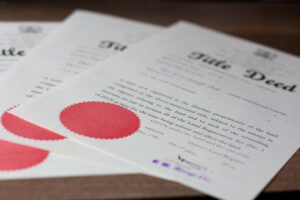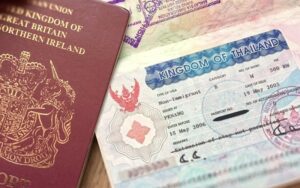Property and real estate disputes in Thailand are unusually documentary and procedure-driven: the legal rulebook is straightforward, but outcomes turn on title type, the timing and quality of proof, the right tactical forum, and fast preservation steps. This article provides practical depth you can use immediately — what the typical disputes look like, how Thai practice changes case strategy, the strongest evidence to marshal, remedies and enforcement realities, realistic timelines and a prevention checklist that will materially reduce risk.
Why Thai disputes are different (title types and registry culture)
Thailand’s land-title regime makes the local Land Department the center of gravity. Titles come in types — chanote (Nor Sor 4 Jor), Nor Sor 3 / Nor Sor 3 Gor, possession certificates and others — and those types have very different evidentiary weight. A chanote is surveyed and coordinate-backed and therefore the most bankable and defensible; lesser certificates require corroborative evidence (tax receipts, possession evidence, surveys). The Land Office’s official extract is the first document to obtain in any dispute; it establishes registered ownership and recorded encumbrances and is almost always decisive on priority questions.
Practically: a dispute is often won or lost at the Land Office counter — so immediate inspection of originals and an up-to-date extract is mandatory.
Common dispute types and the legal mechanics
-
Chain-of-title defects and competing transfers. Forged transfers, gaps in pedigree and simultaneous conveyances are frequent. Resolution requires forensic comparison of deeds, tracing earlier transfers and, when fraud is suspected, parallel criminal complaints.
-
Boundary, survey and encroachment disputes. Old pins lost, administrative re-surveys that don’t match physical markers, or development encroachment. Licensed surveyor reports and GPS-mapped evidence are essential. Courts can order re-surveys and the Land Department can correct registration errors in narrow cases.
-
Adverse possession (prescription) claims. Long, open, continuous and exclusive possession can ripen into title under statutory periods. These claims are intensely factual and require continuous possession evidence (tax receipts, utility bills, photos, witness statements).
-
Mortgage and creditor priority fights. Registered mortgages win by priority; informal security interests or unregistered pledges are weak. Lenders rely on registration mechanics at the Land Office for enforcement.
-
Condominium/juristic-person conflicts. Sinking-fund misuse, budget/assessment disputes, building defects and enforcement of house rules are addressed under the Condominium Act and juristic-person regulations. Meeting minutes and bank statements are usually decisive.
-
Developer defects and construction litigation. Latent defects, delay claims and warranty enforcement require engineers’ reports, snag lists, and contractual proof of defects and remedial timelines.
Evidence that wins in Thailand
-
Original title deed + recent Land Office extract (dated within days of filing). Photocopies or uncertified extracts are weaker.
-
Licensed surveyor’s report mapping cadastral coordinates to physical markers, with photos and GPS metadata. This is often required in boundary cases.
-
Chain-of-title mapping showing dates, registrars, and any unusual endorsements; notarized translations where documents are foreign.
-
Bank remittance traces (FET) and receipts — vital in cross-border purchases and disputes involving foreign funds. For foreign buyers, proving funds remitted and FET evidence avoids Land Office rejection.
-
Continuous possession records (tax receipts, utility bills, photographs, witness affidavits) for adverse-possession claims.
-
Construction/technical reports and contemporaneous defect notifications for builder liability claims.
-
Juristic-person minutes and financial ledgers in strata disputes.
Document authenticity and chain-of-custody matter: courts treat originals very seriously and will often examine seals, ink, and signatures.
Tactical pathways: the right forum and remedies
-
Negotiation & mediation (preferred first step). Thai parties and courts favor mediated settlement; mediation is fast, preserves commercial relationships and mediated agreements can be made enforceable by court order.
-
Land Department remedies. For clerical errors, re-survey requests or to block transfers, petition the Land Office — administrative correction is often quicker than litigation for narrow registry issues.
-
Civil litigation. Quiet-title actions, injunctions, damages and specific performance are heard in civil courts. Civil suits are evidence-heavy; courts may order their own surveys or appoint technical experts.
-
Interim relief / preservation orders. If the asset is at risk (sale, demolition), apply urgently for injunctions and asset-preservation orders. Thai courts can grant emergency relief if urgency and irreparable harm are proved.
-
Criminal complaints. Where forgery, conspiracy or fraud is suspected, file criminal charges with the police to trigger forensic investigations and to use criminal investigative tools alongside civil claims.
Choose the pathway that preserves rights fastest (e.g., injunction + criminal report + civil suit) rather than relying on a single route.
Enforcement — winning is only half the battle
Winning a judgment is different from enforcing it. Enforcement methods include Land Office execution (judicial sale), garnishee of bank accounts, or sheriff execution for movable assets. Enforcement across borders requires asset-tracing and often local enforcement actions in other jurisdictions. For lenders and institutional claimants, structuring security as registered mortgage or share pledge with clear priority records is essential because registration buys enforceability and priority.
Timelines & cost expectations
-
Administrative corrections & mediation: weeks to months.
-
Civil trial (first instance): typically 12–36 months, longer if appeals ensue.
-
Criminal investigations: variable and can delay civil resolution but often produce evidence useful in court.
Costs scale with expert needs (surveyors, engineers, forensic document experts) and with the number of filings and appeals — budget accordingly.
Practical prevention — the prophylactic checklist
-
Inspect originals at the Land Office and obtain a current extract before any purchase. Never rely on seller photocopies.
-
Commission an independent licensed surveyor before exchange when land is non-chanote or boundaries are unclear.
-
Use escrow and staged payments with clear completion conditions; require certified FET proof for foreign funds.
-
Insert robust warranties & indemnities in SPAs and use escrow/holdbacks for developer defects.
-
Register mortgages and leases promptly; get Land Office receipts and priority notices.
-
Keep meticulous accounting and board minutes for juristic-person governance to prevent condominium disputes.
-
Use clear name transliterations and consistent IDs across all documents to avoid administrative mismatch.
Immediate action checklist for an urgent dispute
-
Secure original title and obtain a Land Office extract.
-
Commission a licensed surveyor to record markers and produce a report.
-
Collect bank remittances, receipts and other documentary proof of payment.
-
If sale/transfer is imminent, apply for urgent injunction/preservation order and notify the Land Office.
-
If fraud is suspected, file a criminal complaint and preserve all originals for forensic analysis.
-
Engage experienced Thai property counsel immediately — speed preserves remedies.
Final practical note
Property disputes in Thailand are winnable with the right documentary work-up and fast tactical moves. The Land Office is the arena that matters most, surveys make or break boundary and title claims, and combining administrative, civil and criminal tools is often the fastest, most robust strategy. Prevention — original-title checks, surveys, escrow, and clear contracts — is always cheaper than litigating later.






















